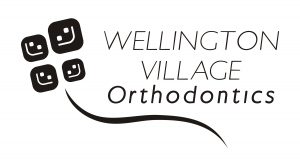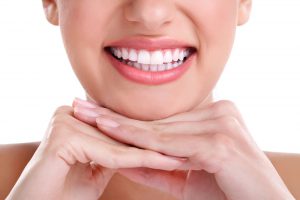It’s no myth that going to the dentist can bring on some anxiety, and with so much stress and stigma surrounding dentists and orthodontists, it’s not surprising that myths about teeth abound. Perhaps you’ve considered whitening your teeth, but you’ve been warned of harmful effects of using bleaching agents; or you’ve avoided chewing gum because you heard it will rot your teeth. Maybe you never had a chance to ask your dentist or orthodontist—that can be a difficult thing to do when your mouth is full of instruments!
Fear not! Here are three of the most common dental myths, and the realities of dental health:
1. “Bleaching will weaken your teeth.”
We’d all like to have that bright, pearly white smile, and sometimes regular brushing and flossing just doesn’t cut it. Luckily there’s a myriad of whitening products available over the counter or from your dental professional to help make your teeth look whiter. Yet some people worry that using bleaching products on their teeth is harmful or destructive, weakening the teeth. The main thing to remember is that you’re not rinsing your mouth out with Javex — teeth-bleaching products are harmless if used according to the directions.
Clinical studies support the safety and effectiveness of home-use bleaching gels when used correctly and appropriately. Tooth sensitivity and irritation to soft tissues can occur during bleaching treatment, but these effects are transient, and there’s no need to fear that using bleaching products will weaken your teeth. Bleaching only affects the color of the teeth, not their strength or health. Bleaching works by removing some of the pigmentation in the tooth, and if you bleach too often, your teeth might begin to appear translucent if you’ve removed too much of the natural pigmentation. Don’t mistake this translucency for weakening of the enamel or damage to the teeth — it’s just a change of color.
2. “If you eat that, your teeth will fall out.”
Sound familiar? Many of us can recall being told that if we drink too much soda, snack on too much taffy, or eat too many cookies, they will destroy our teeth. While all these foods are bad for your teeth (and ultimately your general health), dried fruit, fruit juice and honey all contain natural sugars that can cause tooth decay. But did you know that the amount of sugar you eat is not the deciding factor in tooth decay?
The bacteria in your mouth feed on carbohydrates, like sugar, and produce an acid that eats away at the enamel of your teeth. The longer the sugar is in your mouth, the longer the bacteria can feed and produce acid, and the longer the acid can work on the enamel. In other words, it’s not about the amount of sugar you eat, it’s about how long the sugar is in contact with your teeth.
This means that eating a whole cake then immediately brushing your teeth is less harmful to your dental health than eating one slice without brushing. Sipping on sugary drinks all day, or snacking on slow-dissolving candies like lollipops, allows sugar to hang around your teeth for a long time — not a good idea.
So enjoy the sweets, but make sure you brush right after!
3. “Chewing gum is bad for your teeth.”
This one isn’t exactly a myth — more like a misconception. Chewing gum of any kind increases saliva production, which is a good thing for your oral health. Besides having enzymes that digest carbohydrates, it has antibodies that fight decay-causing bacteria, it contains buffers that neutralize the acids that eat at your teeth, and it contains minerals that help rebuild parts of your teeth that have been attacked by decay acid.
The problem arises when the sugar found in some gum feeds the bacteria in your mouth. So whether gum is good for you or not depends on whether it’s sugar-free or not. Of course, avoid chewing any type of gum if you have braces; gum chewing actually bends the wire (in extreme cases, it can actually break a bracket off completely) and the teeth will then move to the bent wire, instead of following the originally straight wire in your braces.
The key to debunking dental myths is to rely on the experts. There’s no need for stress when you head to your Ottawa orthodontist; we’re here to answer any questions or concerns you may have, and help demystify the topic of dental health. If you’re ever wondering about the realities of dental health, just give us a call at 613-722-8500 or e-mail us at info@bracesinottawa.com!





